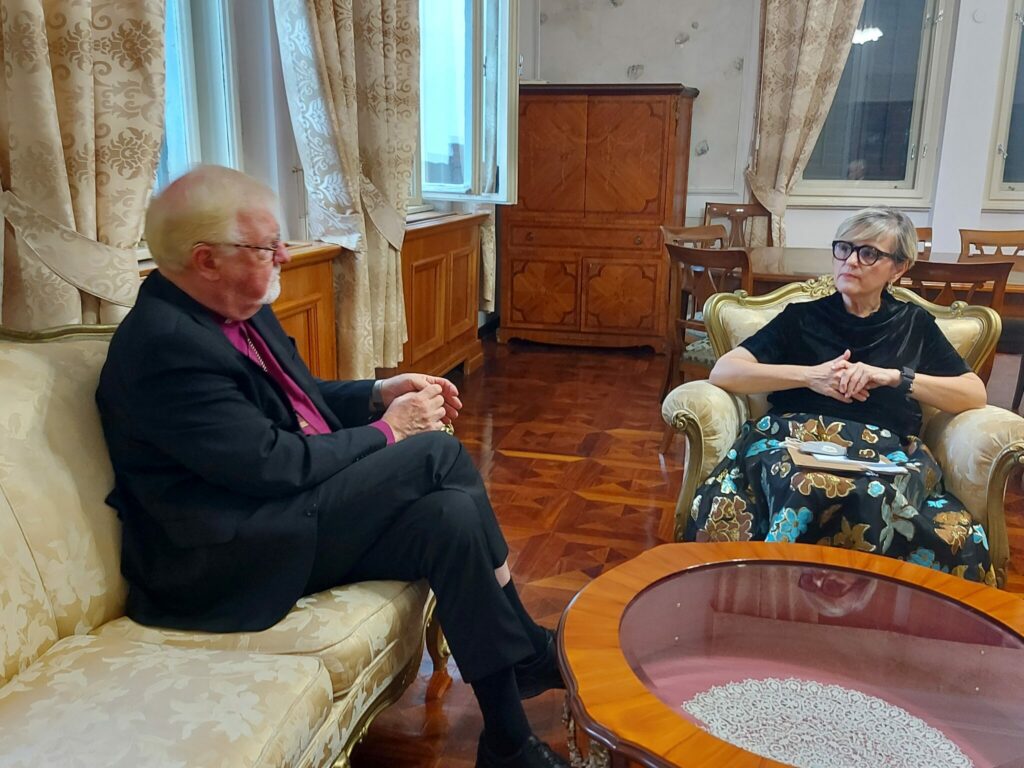Mr. Ole Christian M. Kvarme, Norwegian Bishop of the Church of Norway and former Bishop of Oslo, visited the University of Rijeka on Friday, September 17, 2021. He visited the UNIRI Rectorate, where he was welcomed by Madam Rector, Prof. Snježana Prijić-Samaržija, Ph.D., with associates, i.e. Assist. Prof. Nebojša Zelič, Ph.D., and Assist. Prof. Zoran Grozdanov, Ph.D., both from the UNIRI Center for Peace and Conflict Studies.
The Bishop arrived accompanied by Mr. Stein Villumstad, General Secretary of European Council of Religious Leaders-Religions for Peace since January 2011, with extensive experience in interreligious dialogue, international development, conflict transformation, and human rights.
This is the Bishop’s second visit to the University. He first visited Rijeka in 2019, when negotiations on the establishment of the UNIRI Center for Peace and Conflict Studies had just begun. Today, the Center actively cooperates with the Church of Norway, and through joint projects seek to encourage interreligious dialogue, social engagement and social sensitivity.
During his stay in Croatia with the aim of further promoting interreligious dialogue in the Balkans and Southeast Europe, Bishop Kvarme met with various religious leaders and advocates of interreligious dialogue, including Croatian journalist, theologian and activist Drago Pilsel, head of the Serbian Orthodox Church Patriarch Porphyry, apostolic Nuncio to Croatia Giorgio Lingua and numerous theologians from Croatia, Serbia and Bosnia and Herzegovina. During his stay in Rijeka, he will also meet with the Archbishop of Rijeka, Mate Uzinić.
Bishop Kvarme, who has lived in the Middle East for many years, said the Balkans were particularly vulnerable to religious intolerance and conflict, especially because of the common past, heritage, and growing mention of the Homeland War, the consequences of which are still felt today – 26 years after.
Rector Prijić-Samaržija emphasized the importance of universities and the education system in general in promoting interreligious dialogue and the need for critical reflection on available information, which only seems to deepen conflicts and cause frustration.

